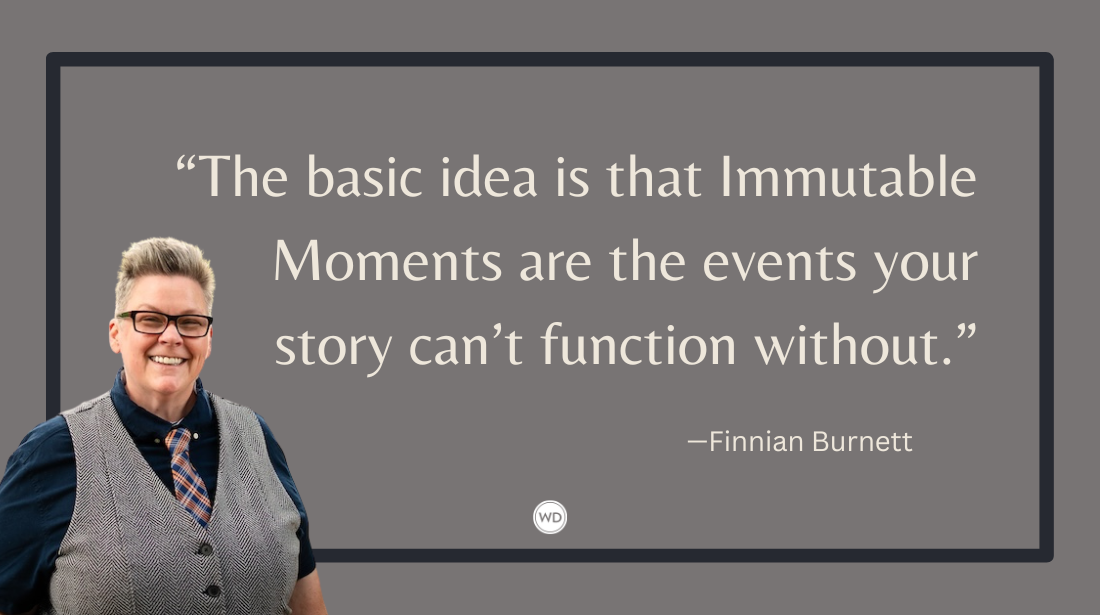How To Write More Compelling Dialogue in Fiction
Dialogue can make or break the feeling of authenticity in a story. Here, author Matthew Farrell shares how to write more compelling dialogue in fiction.
The most consistent feedback I get from my novels, from both professionals and fans, is the compelling and realistic dialogue my characters have. I wish I could tell you a trade secret that could turn all of your characters into interesting, thought-provoking, and fascinating speakers, but the truth of the matter is, I simply write how I would talk.
And as far as the dialogue being compelling—it has to be. I write thrillers, and my job is to keep the reader turning the page. I can’t do that if the dialogue isn’t helping to move the story forward. Let’s dive into each aspect of what I’m talking about. We’ll start with the realism in a character’s conversations.
I’m from New York. My books are mostly set in the Hudson Valley with the exception being my debut, What Have You Done, which was set in Philadelphia (still the Northeast). New Yorkers generally don’t have time to over-explain anything or give huge monologues about something. We get in there, make our point, and get out.
Most of my characters do the same. They don’t use words that wouldn’t come to mind automatically, and they don’t explain things using descriptors that would require a thesaurus. They talk like I talk, like my friends talk, like the people in my community talk. Nothing more, nothing less. Let’s take an example from my upcoming book The Perfect Mother.
I removed some of the extra prose just to get to the meat of Kurt and Laura’s exchange:
Kurt hurried down the stairs, his feet moving faster than the rest of his body could keep up with. “Have you seen my watch?”
“I’m guessing you checked by your wallet and keys?”
“Yeah, I took it upstairs last night to fix the date and I thought I left it in the bathroom, but now I can’t find it.”
“No idea, hon. Sorry.”
“I’m going to be late.” Kurt crossed back into the kitchen, opening cabinets and sliding out drawers. “The sarge said 95 was a mess. I need to leave now or I won’t make my shift.”
“Go,” Laura said. “I’ll look for your watch while you’re gone. You can go one day without it.”
“I guess I’ll have to.” He stood in front of the mirror in the hall and began buttoning his shirt…
This is just a simple exchange where Kurt is running late and can’t find his watch. In the scene it lends itself to something bigger, but in the moment of the quick back-and-forth you can see that there are no extra words that aren’t needed, nor are there any words that are complex or unnatural. He’s in a hurry and needs to find his watch. She hasn’t seen it.
IndieBound | Amazon
[WD uses affiliate links.]
No exposition about what the watch looks like. No run-on about how important the watch is or why he needs it or that he’s upset he can’t find it. Just a quick exchange that a normal, real, couple might have.
You’ll also notice he says “sarge” instead of “sergeant” and ‘95” instead of “Interstate 95”. That’s important. Those are small things that makes a big difference when it comes to sounding authentic. No one talking to his wife would say “My sergeant said Interstate 95 is a mess.” They live in the area. They know what 95 is. And she knows who the sarge is. That’s what keeps it real.
And if you read the exchange out loud, you can hear the cadence and rhythm to the conversation. It sounds like any other chat a real couple might have, and that’s the key. Make the dialogue real. That’s what’ll bring your characters to life.
Moving on to the conversation being compelling. When I hear that, I don’t only think of the conversation having to be interesting, but also that it has to be propelling the story forward. Again, as a thriller writer, I want the reader staying up late, completely unable to put the book down despite their exhaustion. That propulsion is what makes good writers great.
When you can get a reader to sit and devour your book, you’re really hitting on all cylinders. Using another example from my upcoming thriller, The Perfect Mother, let’s look at this quick exchange that’s both compelling and propulsive:
“No more lies. We found you and now we need to talk about what you did to us.”
“My husband’s a cop. He’ll come after you.”
“Come to your mother’s house. We’ll be waiting.”
“My mother’s dead! I don’t know what you’re talking about!”
“Six-thirty. Don’t be late or everyone dies.”
Granted, this is a little out of context, but what I want to show here are the quick sentences. Everything is to the point. It’s statement after statement. Quick exchanges. Short and pointed. It keeps the readers gripping the edge of the page as they can’t help but read faster. They want her to come to her mother’s house, but she’s saying her mother’s dead and seems confused. They don’t care. They tell her to come by six-thirty or everyone dies. Again, quick and pointed, but there are also consequences to the exchange.
As a reader, you want to know if the mother is dead or not. You want to know if she can make it to the house by six-thirty. You automatically want to root for her to make it, so people don’t die. That’s compelling and it also forces the reader to keep reading to see the outcomes of all of these immediate questions. No extra-explaining. No monologues. Just hit the point of the conversation and get that reader to keep reading.
My overall advice to writing dialogue that sounds real and keeps the story moving is to read it out loud after you’ve written it. If it sounds like an authentic conversation that you would hear two people having, you’re okay. If it sounds like a lecture your literature professor might’ve given in college, it might be a bit too much. And learn the dialect of the region your book takes place in. We don’t say “y’all” too much up here in New York, but my friends in Georgia say it all the time.
Finally, keep the conversations moving the story. No one wants to read three pages about a movie the character saw if it doesn’t have anything to do with the plot. Use character conversations to push that plot and move the action. Once you’ve done these things, you’ll find your dialogue both compelling and propulsive, and that’s what will take your writing to the next level and keep those readers turning the page.
Matthew Farrell is the Washington Post and Amazon Charts bestselling author of the Adler & Dwyer thriller series. His books have sold in over 15 countries and film rights have been sold for his debut What Have You Done. Matthew lives just outside of New York City in the Hudson Valley with his wife and two daughters and is currently at work on his next book.








